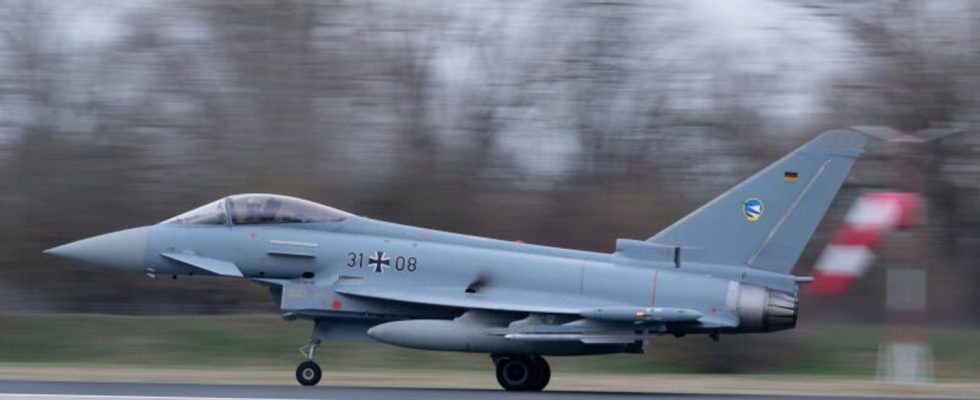Over the Baltic Sea
Swedish fighter jets identify Russian pilots in first NATO mission
Germany has five to secure NATO airspace over Estonia, Latvia and Lithuania Eurofighter stationed in Latvia.
© Sven Hoppe/dpa
Sweden has only been a member of NATO for a few days. Military aircraft from Stockholm are now in use for the alliance for the first time.
This article first appeared at ntv.de
The Swedish Air Force took part in North Atlantic defense alliance operations as a NATO member for the first time. As NATO announced, Swedish Jas 39 Gripen fighter jets took part in two protective flights on Monday to secure the airspace over the Baltic Sea. Accordingly, radar devices detected an unidentified aircraft track over the Baltic Sea in the morning, leading from the Kaliningrad enclave to the Russian mainland.
The air traffic controllers at NATO Central Command in Uedem, North Rhine-Westphalia, then ordered Gripen jets from Sweden and Belgian F-16 fighter jets to take off from the Lithuanian Siauliai base. A short time later, the fighter jets identified an unannounced Russian Tupolev TU-134 short-haul aircraft.
Later in the day, the flight track of a Russian Antonov An-26 transport plane appeared on NATO radar screens, whereupon Swedish Gripen and German Eurofighters were alerted from the Latvian base in Lielvarde. The fighter jets “conducted visual identification” and “escorted the aircraft,” a statement said. According to NATO, it was for the German Air Force the second use since taking over air traffic control over the Baltics at the beginning of March.
Eurofighter for securing NATO airspace
To secure NATO airspace over Estonia, Latvia and Lithuania, Germany has stationed five Eurofighters in Latvia. Air Force Squadron 74’s mission is scheduled to run until the end of November. Since the Baltic states joined the alliance 20 years ago, NATO states have regularly relocated aircraft to the region as a visible sign of alliance solidarity.
“Air Defender 2023”
Fighter jets over Germany: This is what the largest NATO air force exercise of all time looks like
Sweden formally joined NATO a few days ago. The official acceptance ceremony now took place in Brussels. The country applied for membership in May 2022 due to Russia’s war of aggression against Ukraine. However, Turkey and Hungary held up the accession process for almost two years.

